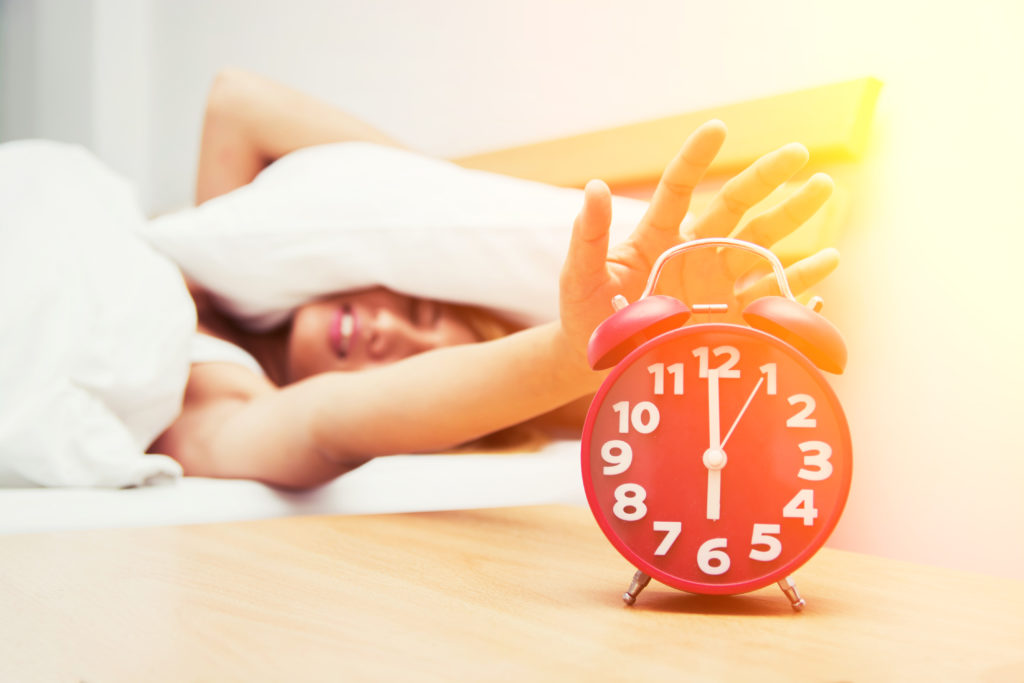DESIGNED BY FREEPIK
Is your mind racing when you lay down at night to go to sleep? Does your growing to-do list keep you awake for hours on end–even when you are exhausted and know you need a solid night’s rest? These 6 simple ideas can help you sleep better.
There is a Parks and Recreation episode where the main character, Leslie, is trying to come up with great ideas after the smashing success of a community festival. She has a deadline by which she needs to produce several applause-worthy ideas, and she is at a total loss. She recruits her team to get out in nature to brainstorm, but they come up dry and wind up at a motel where she plans to stay awake all night at the drawing board in order to make her deadline. She is frazzled, irritable, snappy, and certainly nowhere near having any quality–let alone showstopper–ideas. What happens? One of her team members forces her into her room, locks her inside, and demands that she sleep. After sleeping 8+ hours, Leslie runs into the office (late) with a LIST of awesome ideas that everyone is excited about.
You may wonder what Parks and Recreation has to do with this week’s blog post topic of self-care. Well, this episode demonstrates an important point many of us overlook in our daily lives. We often think we have to stay up late, push through it, work extra hard, and force ourselves to produce quality work. In fact, in a 2013 Gallup report, it was reported that 41% of Americans are not getting the recommended 7-8 hours of sleep each night! We are overscheduled, overworked and overburdened. By the time we hit the sheets, we may have so much on our mind that we either do not sleep well or do not sleep long enough. And quality sleep really does a body so much good!
Proper sleep affects all aspects of our life–our overall mood, our ability to make decisions, our productivity…even our weight is influenced by how much we sleep. Last year, a study was published showing that sleeping less than six hours per night for just one week resulted in changes in 700 genes in the human body. Although researchers do not understand the full ramifications of these changes, it is clear that there is an impact on our immune system, stress response, and an increase in inflammation.
What needs to be done? We need sleep. We need more of it, and we need it to be quality sleep. Whether you fall into bed exhausted each night or you end up laying in bed for awhile with your mind racing, the following six pointers will help you improve your sleep:
-
- Create an environment meant only for sleeping: In college, I was counseled that it was unwise to study in bed because the bed is where I sleep and my body can get confused if I do other activities, such as studying or reading, in it. My advice for better sleep is to use specific places for certain activities: study at a desk, peruse instagram on a couch, and sleep in your bed. Give your body the signal that it is time to wind down by keeping work, tv and other digital devices out of the bedroom.
- Turn the thermostat down a few degrees. Several sleep studies have shown that people sleep better when their bedroom is on the colder side.
- Write. If your mind is often racing at bedtime, give yourself a few minutes before bed to to write down anything that is lingering in your mind. Once you jot your thoughts down, you will signal to your brain that is it okay to let those thoughts go.
- Shhhhh. Eliminate any unnecessary peripheral noises from your room. (If your partner snores, try earplugs or noise-canceling headphones.)
- Create a routine. Babies need a routine with things like a bath, massage, bottle, story time, and lullaby to signal that it is bedtime. Well, adults need routines, too! Create a “winding down” routine for yourself and try to go to sleep / wake up at the same time each day. Our bodies respond well to predictability; try it!
- Breathe. Dr. Weil recommends a simple breathing exercise that can invite sleep in 60 seconds. It is called the 4-7-8 Breathing Technique. Basically, you do the following:
- Be in a comfortable position (where you are not restricting your ability for deep breathing)
- Place the tip of your tongue on the roof of your mouth behind your front teeth
- Exhale completely
- Inhale through your nose to a count of four
- Hold your breath for a count of seven
- Exhale through your mouth to a count of eight
- Repeat three times
Of all the things we can do for our bodies, there is nothing it needs more than quality sleep. Getting proper rest does so much good for our overall health! We owe our bodies time to reenergize so we can live, be, and do our best each day. If you find you need additional help or guidance, feel free to contact me to schedule your first session today. Getting proper rest is not a passive activity, so let’s take action and let sleep do our bodies good!
Resources:
Dr. Weil, “Three Breathing Exercises and Techniques”
Gallup Report: “In U.S., 40% Get Less Than Recommended Amount of Sleep”
Power of Positivity: “This Relaxation Exercise Can Help You Fall Asleep In 60 Seconds”
Simplemost: “Science Says Sleeping In A Cold Room Is Better For Your Health”


